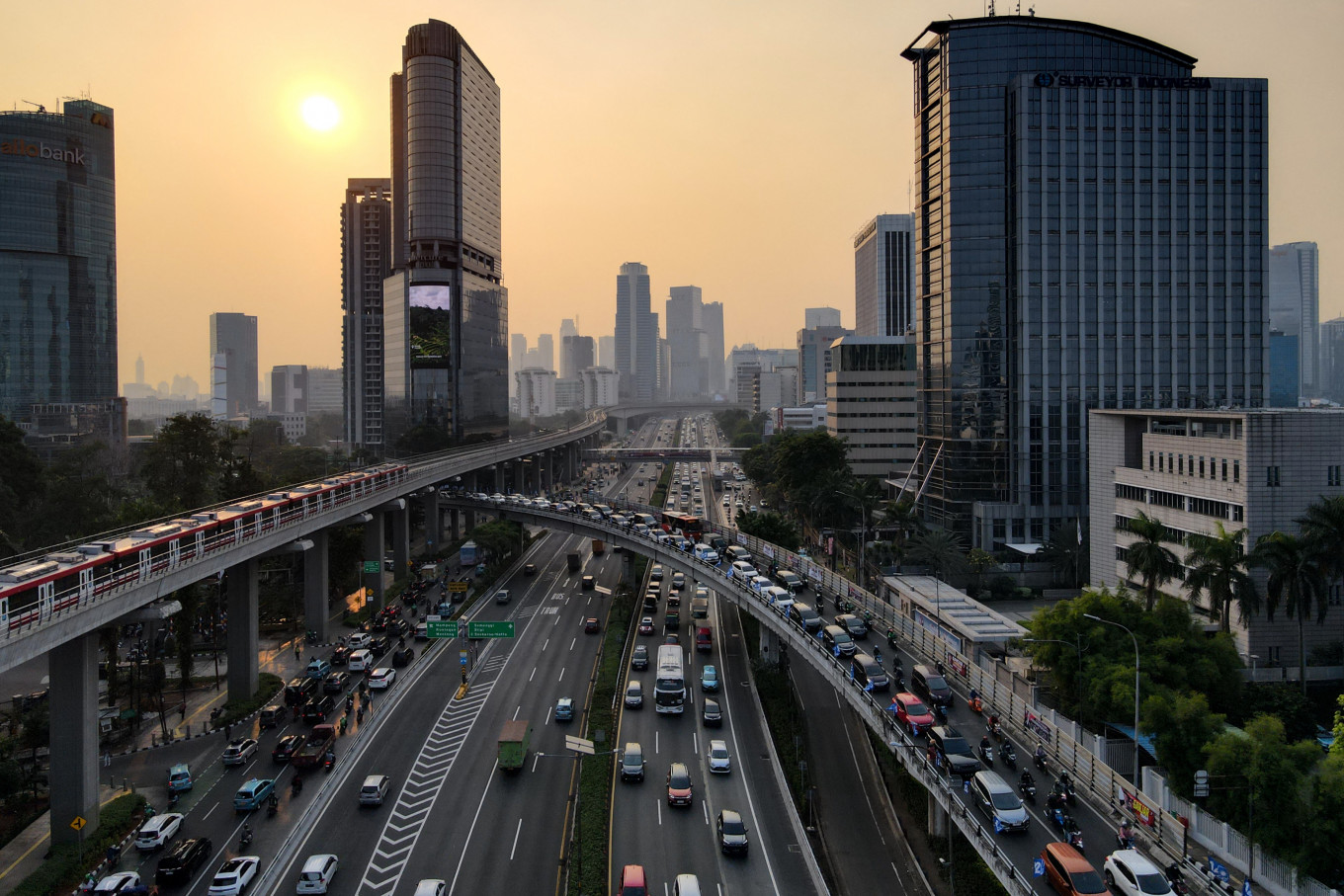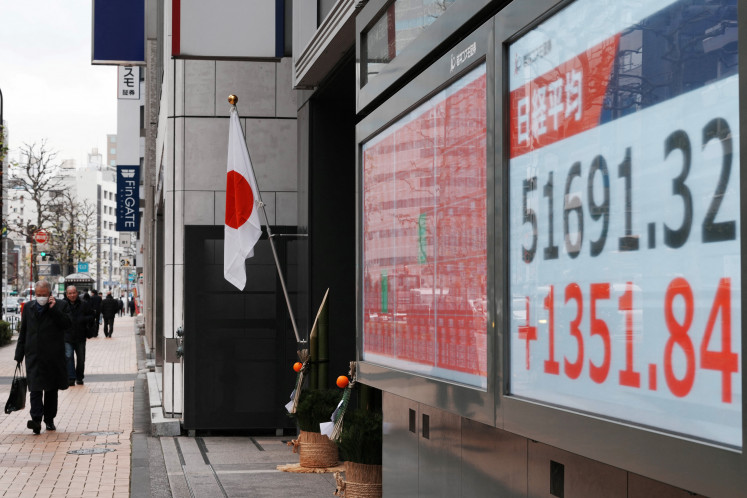Popular Reads
Top Results
Can't find what you're looking for?
View all search resultsPopular Reads
Top Results
Can't find what you're looking for?
View all search resultsIndonesia's quest for developed country status faces economic hurdles
Indonesia's 2045 development goal faces economic obstacles, but the government remains optimistic.
Change text size
Gift Premium Articles
to Anyone
Indonesia is unlikely to achieve developed-country status by 2045 due to the less-than-optimal growth of its domestic economy.
In order to ascend to developed-country status, a nation typically requires sustained annual economic growth of 7 percent for 15 consecutive years. However, in the release of a white paper titled "From LPEM for Indonesia: Economic and Social Agenda 2024-2029", it is evident that Indonesia has not met the prerequisite conditions.
According to data from economic think-tank the Institute for Economic and Social Research of the Faculty of Economics and Business, University of Indonesia (LPEM FEB UI), the various factors contributing to Indonesia's potential failure to attain developed country status are linked to stagnant economic growth that has yet to reach the 5 percent mark. Furthermore, annual loan growth has never surpassed the 15 percent threshold.
Additionally, the tax-to-GDP ratio has never exceeded 11 percent and has remained as low as 9.9 percent over the past decade. The contribution of the industrial sector to GDP has declined to 18 percent, while extreme poverty persists at a rate of 1.7 percent.
Chaikal Nuryakin, the head of the LPEM FEB UI, described these economic conditions as encountering an insurmountable barrier at every turn.
"It seems that we hit a glass ceiling everywhere," said Chaikal.
"I think these are very critical notes, whether the dream is realistic or not, or whether we need to rethink the concept of 'Indonesia Emas 2045' [Golden Indonesia 2045] or it might become 'Indonesia Cemas 2045' [Worrying Indonesia 2045]," said the dean of the UI Faculty of Economics and Business, Teguh Hartanto, who is one of the authors of the white paper.
Chaikal underlined the importance of an alternative strategy to mitigate the economic impact in case Indonesia fails to achieve developed-country status. One of these strategies involves preparing Indonesia's substantial middle-class population, which accounts for 40 to 80 percent of the total Indonesian population.
He highlighted that in order to achieve the "Indonesia Emas 2045" vision, future governments after President Joko “Jokowi” Widodo could draw inspiration from developing countries that have successfully transitioned into high-income nations, such as Japan, South Korea and the Scandinavian countries.
According to Chaikal, these nations have progressed by enhancing their research and innovation capacities and by focusing on advancing the quality of their human resources.
By applying these actions, he said Indonesia will no longer be a consumer of goods and services and low-end technology but will also have the ability to become a producer engaged in the global ecosystem supply chain.
"Indonesia should cultivate a strong and innovative middle class. If by 2045 we do not attain developed-country status, Indonesia will still possess a strong and productive middle class," said Chaikal.
He believed that this could be accomplished through improving equal opportunities and access to quality education and health care, creating formal sector employment, enhancing basic infrastructure and implementing comprehensive social safety nets.
"This will serve as the primary and perhaps the sole means to realize the 'Indonesia Emas 2045' dream," said Chaikal.
He emphasized that economic growth during Jokowi’s first term was inclusive, but it became non-inclusive in the second term.
Separately, Coordinating Economic Minister Airlangga Hartarto was upbeat that Indonesia would still become a developed country by 2045, in contrast to the projections of the LPEM FEB UI.
Airlangga also affirmed that Indonesia has undergone various economic transformations, insisting that the 2045 developed Indonesia target will be achieved.
He said that the government's optimism was grounded in Jokowi’s successful ability to lead Indonesia into the process of joining the Organization for Economic Cooperation and Development (OECD).
"The Indonesian government is always optimistic. We are in the process of joining the OECD framework, so there are many preparations for the next transformation," Airlangga said on Tuesday.











